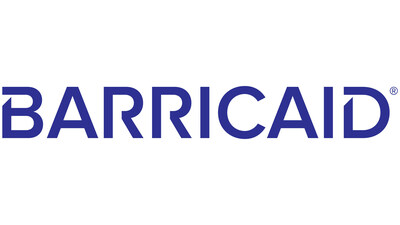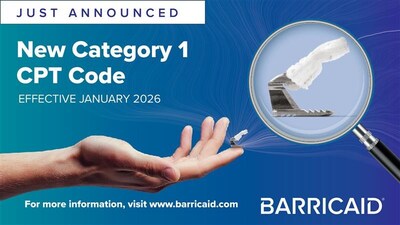
“A new Category 1 CPT code represents a significant milestone for any new technology. Category 1 codes are intended to describe procedures that demonstrate high levels of clinical evidence and efficacy. Most importantly, this distinction demonstrates that Barricaid has met the rigorous criteria the AMA sets forth, including robust clinical data and widespread adoption by physicians, further substantiating the medical necessity of this critical therapeutic alternative,” commented Dr. Serena Hu, Chief, Orthopaedic Spine Service, Department of Orthopaedic Surgery at Stanford. “For physicians, achievement of a CPT code not only offers a pathway to reimbursement, but also is a strong indicator of clinical acceptance and a new standard of care within the surgical community.”
This achievement of the Category 1 CPT code follows a succession of several key milestones for Barricaid including: statistical superiority vs a discectomy alone in multiple randomized pivotal trials, FDA Premarket Approval (PMA), issuance by Center for Medicare & Medicaid Services (CMS) of a clinical C-Code for facility payment, and Center for Disease Control (CDC) publication of ICD-10-CM codes to report large annular defects. The addition of this CPT code represents a major reimbursement milestone for the Barricaid procedure that will help to standardize and streamline the reimbursement process. This new CPT code will go into effect on or after January 1, 2026.
“Successfully gaining the support and approval of key healthcare organizations like FDA, CMS, CDC and AMA requires irrefutable clinical evidence. We are truly grateful for the tremendous effort put forth by the surgeons and national specialty medical societies who have collaborated with one another and cooperated with Intrinsic to collect this clinical evidence and achieve these incredible milestones,” stated Ryan Drant, Chairman of the Board at Intrinsic Therapeutics.
About Barricaid
Barricaid is a proprietary technology designed to prevent reherniation and reoperation in patients with large annular defects following lumbar discectomy surgery. Barricaid has been implanted in more than eleven thousand patients and is supported by clinical studies in 8 distinct patient populations, including two randomized controlled trials and six single armed trials. A multicenter level I RCT demonstrating superior outcomes to discectomy alone with 5-year results was published in JAMA.
For full benefit-risk information, please visit www.Barricaid.com
Barricaid is a registered trademark of Intrinsic Therapeutics, Inc.




